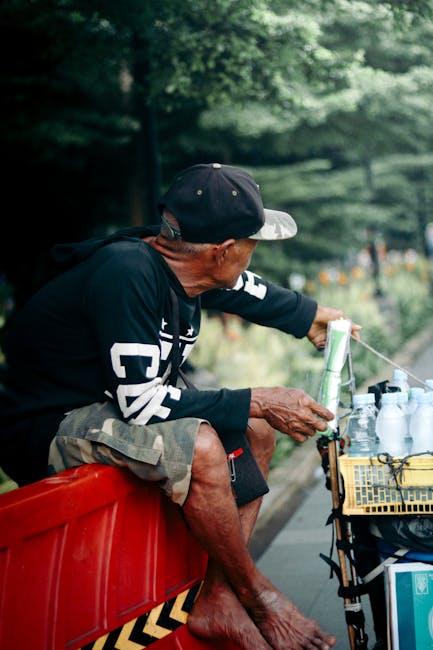In a world brimming with noise and distraction,the quest for clarity and purpose has never felt more urgent. Enter Sam Harris, a figure whose blend of neuroscience, ideology, and spirituality captivates an ever-growing audience. In his podcast “Waking Up,” Harris offers a space for contemplative dialog, exploring everything from ethical dilemmas to the nature of consciousness itself. But is this auditory journey a deep philosophical exploration,or does it lean more towards practical self-help? As we delve into the intricacies of Harris’s discussions,we invite you to reflect on the dualities of thought and action,theory and request. Join us as we navigate the contours of “Waking Up with Sam Harris,” seeking to uncover whether it serves as a philosophical compass or a pragmatic guide in our daily lives.
Exploring the Philosophical Foundations of Waking Up
Delving into the philosophical underpinnings of Sam Harris’s “Waking Up” invites contemplation of consciousness and the nature of self. At the heart of Harris’s exploration lies the challenge to our conventional views on identity, urging readers to question the solidity of the “I.” This deconstruction of self aligns with various philosophical traditions, particularly those of Eastern thought. By employing techniques grounded in mindfulness and meditation,Harris encourages a shift from a narrative-driven existence to one that recognizes the fluidity of experience. Through this perspective, one can ponder profound questions such as:
- what does it mean to truly wake up?
- How does mindfulness alter our perception of reality?
- Can understanding consciousness lead to greater empathy?
The interplay between the practical applications of meditation and the philosophical insights garnered from such practices raises notable inquiries regarding the interconnectedness of the mind and reality.Harris delineates a pathway toward a deeper understanding of consciousness that transcends mere intellectual engagement. Take note of some fundamental differences that emerge in this philosophical dialogue:
| Practical Insights | Philosophical Considerations |
|---|---|
| Mindfulness meditation as a tool for stress reduction | The nature of self and illusion of ego |
| Enhancing concentration and emotional regulation | Implications of a non-dualistic view of existence |
| Promoting mental well-being and clarity | Exploration of consciousness beyond thoughts |

Practical Tools for Daily Mindfulness and Reflection
Incorporating mindfulness into our daily routine can be as simple as dedicating a few moments each day to intentional practices. Some practical tools that can aid in this endeavor include:
- Meditation Apps: Platforms like headspace and Calm guide users through meditations tailored for different needs, making mindfulness accessible at any moment.
- Journaling Prompts: Begin or end your day with thought-provoking questions that encourage reflection. For instance, “What am I grateful for today?” or “What challenges did I face and how did I grow?”
- Mindful Breaks: Set aside time during the day to step away from distractions. Engage in deep breathing or a brief walk to reconnect with the present moment.
Moreover, the power of community can enhance personal mindfulness practices. Consider these group activities:
| Activity | Benefit |
|---|---|
| Group Meditations | Shared energy amplifies focus and intention. |
| Mindfulness Workshops | Learning techniques and gaining support from others. |
| Book Clubs | Discussing philosophical texts cultivates deeper understanding and reflection. |

Engaging with the Community: insights from Fellow Practitioners
In the ever-evolving landscape of philosophical discourse, engaging with fellow practitioners reveals a tapestry of perspectives that enrich our understanding. Many shared insights from their personal experiences of Waking Up, highlighting its blend of philosophy and practical mindfulness techniques. Noteworthy points include:
- The Importance of Clarity: Practitioners valued Harris’s ability to distill complex ideas into accessible concepts, promoting clarity in discussions about consciousness and meditation.
- Practical Application: A consensus emerged surrounding the practical exercises featured in the program, which practitioners found beneficial for integrating mindfulness into daily routines.
- Community reflection: engaging in group discussions about the material fostered deeper reflection and understanding of the philosophical principles at play.
A fascinating aspect of these conversations has been the shared anecdotes of personal transformation, particularly how individual practices have catalyzed meaningful changes. several participants found that combining Harris’s teachings with their own spiritual traditions lead to a more profound sense of interconnectedness and presence.the collective feedback resonates in a simple comparison:
| Philosophical Insight | Practical Application |
|---|---|
| Understanding Consciousness | Daily Meditation |
| Non-dual Awareness | Mindful Breathing |
Through these interactions, it becomes increasingly clear that the richness of Harris’s work lies not just in his philosophical musings but also in its capacity to inspire actionable change within communities of practise.

Assessing the Impact: Personal Growth Through Guided Meditation
Guided meditation offers a unique pathway for individuals seeking personal growth in an increasingly chaotic world. Through the practice, participants can experience a range of transformative benefits, including:
- Enhanced Self-Awareness: Meditation fosters a deeper understanding of oneself, helping practitioners identify their thoughts, emotions, and behaviors.
- Stress Reduction: Regular engagement can significantly alleviate stress and anxiety,creating a more balanced mental state.
- Improved Focus: Many find that mindfulness practices help sharpen their concentration and cognitive abilities.
- Emotional Resilience: Guided meditation teaches techniques to handle challenging emotional states more effectively.
Platforms like “Waking Up with Sam Harris” provide structured programs that not only teach meditation techniques but also weave in philosophical insights, expanding the mind’s possibilities.This fusion allows practitioners to tackle deeper existential questions while concurrently engaging in practical exercises. A closer examination of the impact reveals:
| Aspect | Impact |
|---|---|
| Mindfulness | Enhanced present-moment awareness |
| Emotional Clarity | Ability to process and articulate emotions |
| Philosophical Insights | deeper understanding of self and existence |
| Community | Connection with a like-minded group of learners |
Key Takeaways
As we draw the curtain on our exploration of ”Waking Up with Sam Harris,” it’s evident that this app serves as a unique crossroads between philosophy and practicality. With its blend of guided meditations, reflections on consciousness, and thought-provoking dialogues, it invites users to delve into the depths of their minds while equipping them with tools for everyday life.
Whether you find solace in the philosophical musings that challenge your perceptions,or prefer the straightforward practicality of mindfulness techniques,Harris’s approach offers a buffet of insights that cater to diverse needs. In navigating this intricate landscape of waking up—not just in the morning,but to the realities of our existence—you may discover a renewed sense of purpose and peace.
Ultimately, ”Waking Up” raises essential questions about the nature of self and awareness, inviting us to ponder how these ideas can be woven into the fabric of our daily routines. as you decide whether this journey resonates with your own quest for understanding, remember that the exploration of consciousness is as much about the questions we ask as the answers we seek. So, rise and engage with the world around you—after all, waking up is just the beginning.



